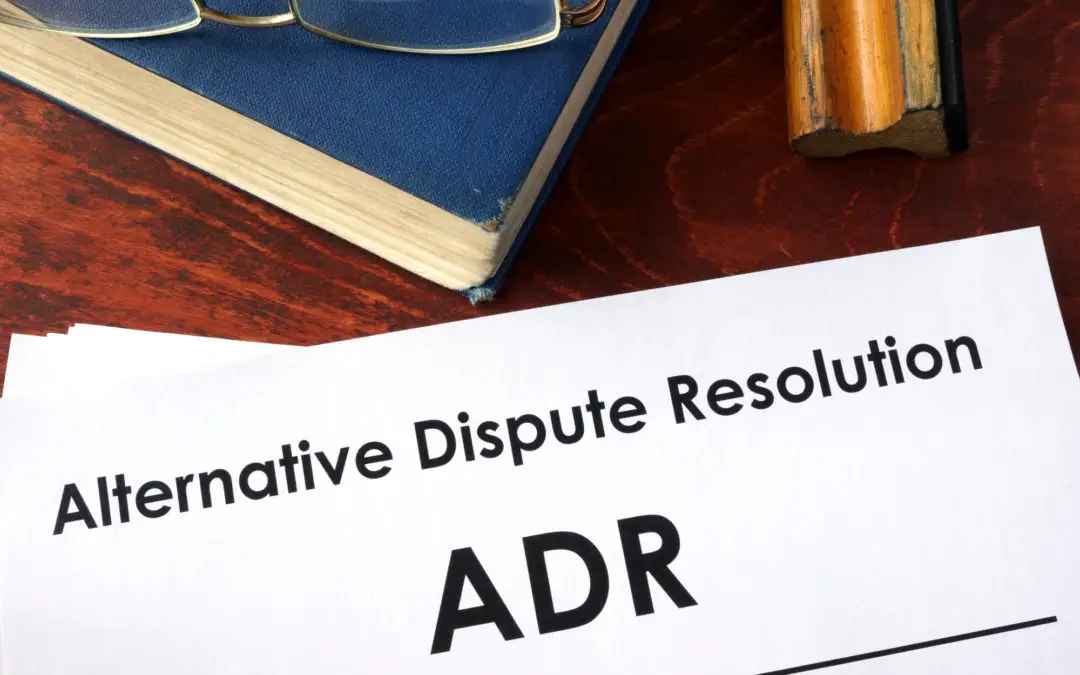Every year, lawyers file millions of lawsuits for individuals and businesses. A small business might find itself on the end of several kinds of lawsuits, such as wrongful termination, discrimination, or negligence. Big corporations might end up on the wrong end of a class-action lawsuit.
Yet, lawsuits cost a lot and are often drawn-out processes. Worse, you can’t predict the results. That’s why many people and businesses prefer a less drastic option, like mediation.
If you aren’t familiar with mediation and the mediation process, keep reading. We’ll offer a mediation FAQ that should help you understand mediation and its process.
What Is Mediation?
Mediation is a process known as alternate dispute resolution. It’s typically used in civil matters to help parties reach a resolution on points of conflict. In essence, a third-party with mediation training helps guide the parties to a mutually acceptable decision or settlement.
For example, let’s say that a divorcing couple wants to avoid a bitter, public divorce trial. They might seek mediation to help them settle important issues like a custody agreement and division of assets ahead of time.
How Can Mediation Help?
Mediation offers several potential benefits to everyone involved. Mediation is almost always faster than the other options. It typically happens over a few days.
It’s a confidential process. That means that people can bring up issues or reveal facts that might otherwise harm their position if it came up in court. No one can discuss anything that gets revealed during mediation unless everyone agrees or they are legally bound to do so.
One example of legally bound to break the confidentiality is if one party accuses the other of child abuse during the mediation. Odds are good that there is at least one lawyer in the room. Lawyers serve as officers of the court and must generally report these types of allegations by law.
While it’s not a 100 percent guarantee, most people follow through on the agreements they reach during mediation. This can prove especially important if both sides expect an ongoing business or relationship after the mediation.
How Does Mediation Work?
The mediation process itself is a pretty straightforward affair. The people in a dispute meet a neutral location, typically a conference room or similar location.
The process is guided by the mediator. They are a neutral third-party brought in specifically because they don’t have a stake in the outcome of the mediation. That neutrality lets them offer guidance and help direct the discussion with minimal resentment from anyone involved.
The mediator doesn’t decide matters for the people in the dispute. Their goal is for everyone to reach a mutually acceptable agreement. Once the mediation is over, the mediator will typically write up the end results.
If there is an agreement, the mediator will write up the main details of the agreement. If there isn’t an agreement, the mediator will detail the points everyone did agree on and the points they couldn’t agree on.
Is Mediation Legally Binding?
You might wonder if mediation is a legally binding process. In general, mediation is not legally binding.
Rather, its main function is to help people in a dispute reach a voluntary agreement everyone can live with. This typically includes voluntary action steps that everyone will follow.
For example, say a restaurant and a vendor are in a dispute over invoice payments. The restaurant argues the vendor delivered old vegetables it couldn’t serve. The vendor claims it delivered fresh vegetables.
The parties agree that the restaurant will cover the base cost of the vegetables but not the markup.
However, in some cases, courts do hold signed mediation agreements as legally binding.
Who Is the Mediator?
Unless you work with a court-appointed mediator, there are few hard and fast rules about who can serve as a mediator. That being said, mediators are often very experienced lawyers who specialize in the area of law that the dispute is about.
For example, let’s say that you end up in a contract dispute with your employer. Your employer may accept mediation as an alternative to court but insist the mediator has experience in contract law. This helps everyone in the long-run since the mediator will know what will and won’t fly in terms of a settlement.
The mediator is never the lawyer for either party, and both parties must typically agree on a mediator. This ensures that the mediator remains impartial throughout the process.
In some cases, the mediator may not be a lawyer but a specialist in a career field, such as sports, finance, or real estate.
Do I Need a Lawyer for Mediation?
Some people choose to bring a lawyer to mediation for advice and some do not. As a general rule, you aren’t required to bring a lawyer with you. If you have a lawyer, you should discuss the possibility of a mediation process with them.
Ask them if they think they should attend the mediation. Since every dispute has its own unique features, your lawyer may or may not think they should attend.
Is Mediation the Same as Arbitration?
Some people mistake mediation and arbitration for the same thing. While both take place outside of the traditional courtroom, they are different processes.
Arbitration works more like the process you see in a courtroom. The arbitrator hears evidence from both parties. After hearing both sides, the arbitrator does make a decision this is often legally binding.
Mediation and You
The mediation process offers everyone involved an alternative way that they can resolve their differences. It seeks a mutual agreement that the parties reach through discussion and negotiation. This can help preserve relationships that might otherwise not survive a court trial.
Mediation works best when both sides want some kind of agreement. Mediation does have limits, though. For example, you won’t typically see admissions of guilt after a mediation.
Law Mediation specializes in mediation and arbitration for business and civil disputes. If you think you need a mediator, contact Law Mediation today for more information.

